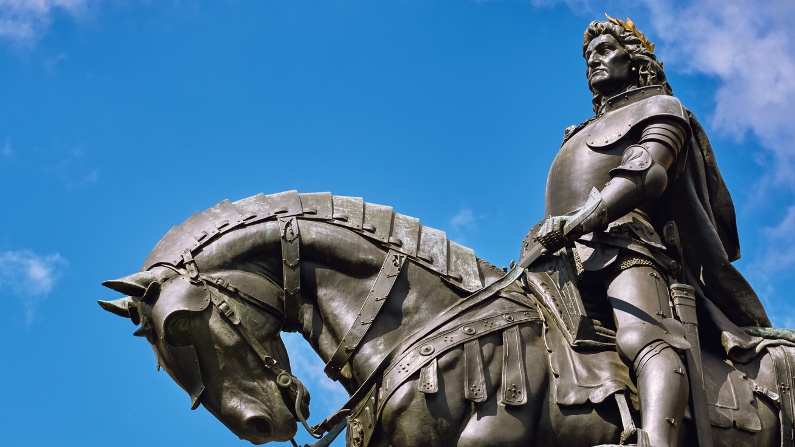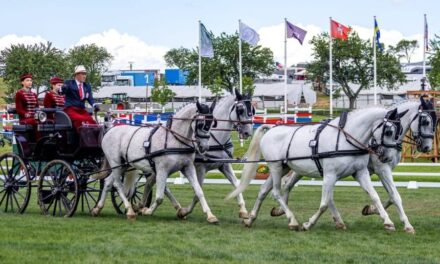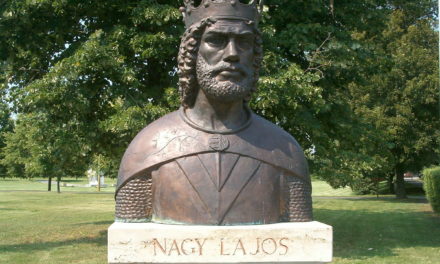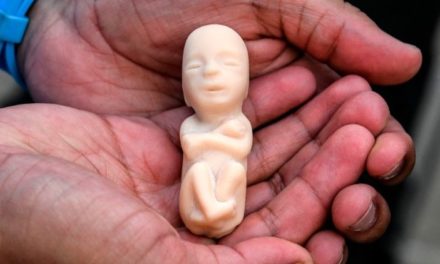"A nation that does not know its past does not understand its present, and cannot create its future!"
Europe needs Hungary... which has never let itself be defeated.
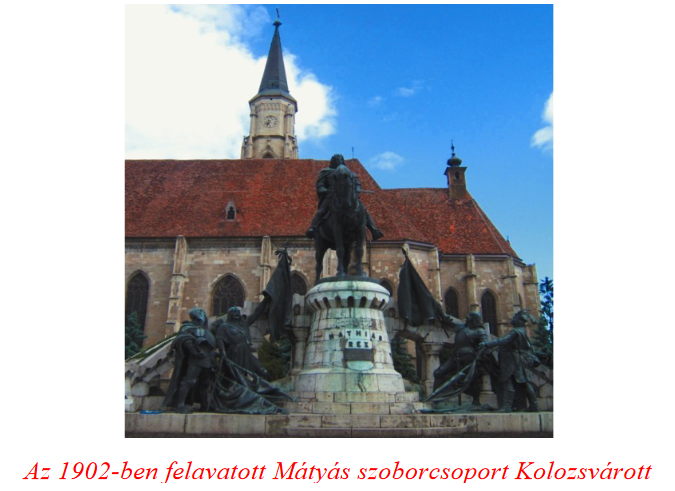
Mátyás's childhood
Mátyás Hunyadi was born - on February 23, 1443 - his father, János Hunyadi, earned the nickname "Turkey-beater" just the year before, and prepared his army for a long campaign. The Hunyadi family lived safely in Cluj-Napoca, in the still-standing birth house. Mátyás was born in this confused situation. The child grew up in the years of a series of campaigns, the death of the king, a dispute over the throne, the growing Turkish threat, conflicts between the lords, and then his father's mandate as governor. János Hunyadi, however, paid great attention to the teaching and upbringing of his younger son. Renowned scholarly teachers laid the foundation for Mátyás's education, his knowledge of Latin and then German, as well as his historical, literary and geographical knowledge.
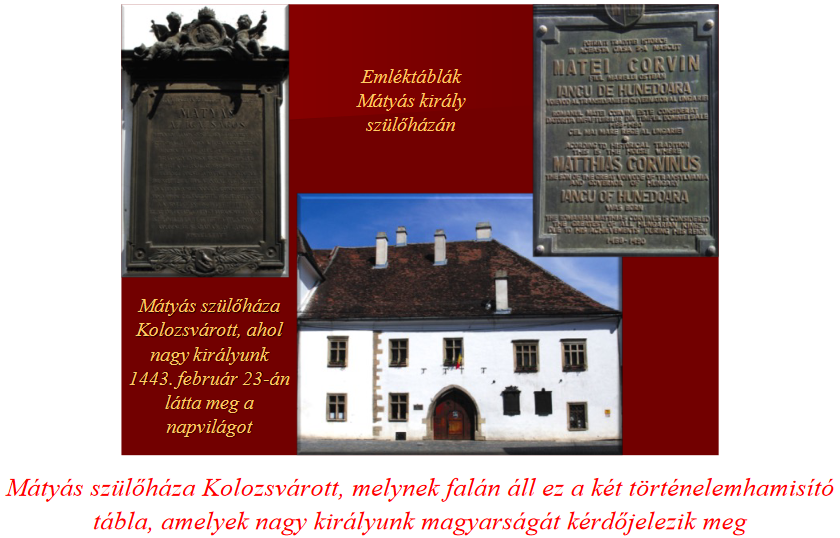
Mátyás loved to read since childhood. He especially liked old Roman stories and works of military science. After a while, the young man's education was supervised by János Hunyadi's friend, the highly knowledgeable János Vitéz , who created
the Renaissance culture in Hungary, in the entire Carpathian basin. Thanks to the high priest, Mátyás acquired such knowledge and education that he was able to argue with qualified scientists as an equal party. Bonfini , admittedly
years later, captured the essence when he wrote about the 15-year-old king: "...he will also compete with his father's reputation.
He was born in the army, grew up in valiant clothing, was brought up in the tents of old soldiers, ... he learned not to be afraid of Turkish bravado and military order, he knows how to fight a siege, take the word of a captain, fight on horseback and on foot, practice daily, swim across the Danube often, spend the night in frost and snow -to spend the day wearing a helmet, to endure fatigue and hunger..." This was true, as we know that he spent most of his life in military camps. He enjoyed the renaissance splendor of Buda and Visegrád, the hunting, less than it lives in the public consciousness. It is true that when he stayed in his palaces, he was generous with his guests and court maintenance. He dazzled the ambassadors, scientists, and artists coming from abroad not only with the richly laid table, but also with the beauty of his palaces, his unparalleled knowledge, and his ability to debate.
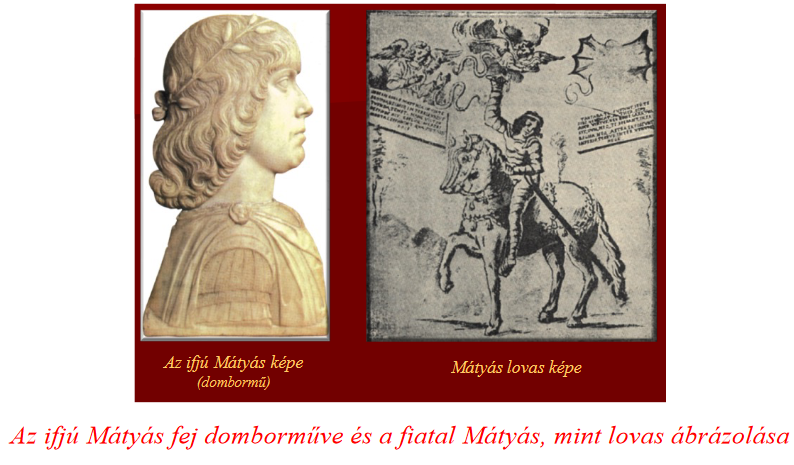
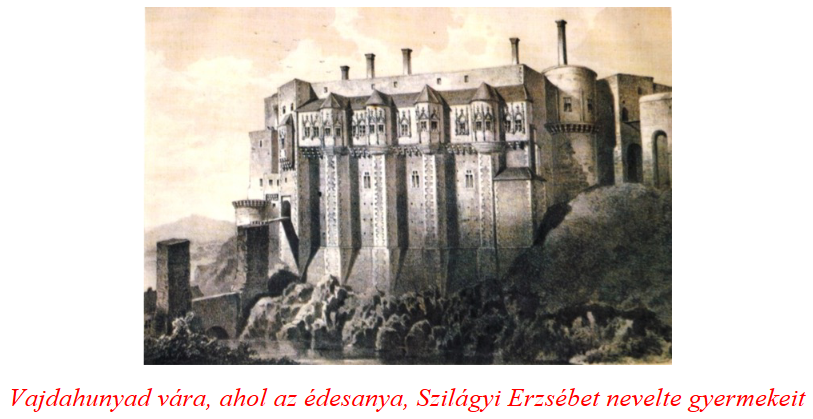
The death of László Hunyadi
The young Hunyadi experienced the Nándorfehérvár triumph and, shortly after, the death of his father at the age of thirteen. After the death of the Turkish beater, his eldest son, László Hunyadi, took over the management of the family.
They were aware that their lives were in danger, as many applied for the huge estates of the Hunyadis and their positions at the head of the country. It was no accident that the father, János Hunyadi, warned the two sons - László and Mátyás - never to be in the same place when their opponents were present . Because if both of them are lost, then everything that János Hunyadi built will be lost. We are not only talking about family wealth, but also about the fate of the country.
The concern of the head of the family was not unfounded, since after his death Ulrik Cillei immediately appointed himself as captain-in-chief in János Hunyadi's place, demanding the income of the castles that came with it. However, the 23-year-old László Hunyadi was not willing to do this. Count László decided to make a bold decision when his messenger visited the royal delegation that was staying in Futak near Újvidék and summoned Ulrik Cillei to Nándorfehérvár on November 9, 1456.
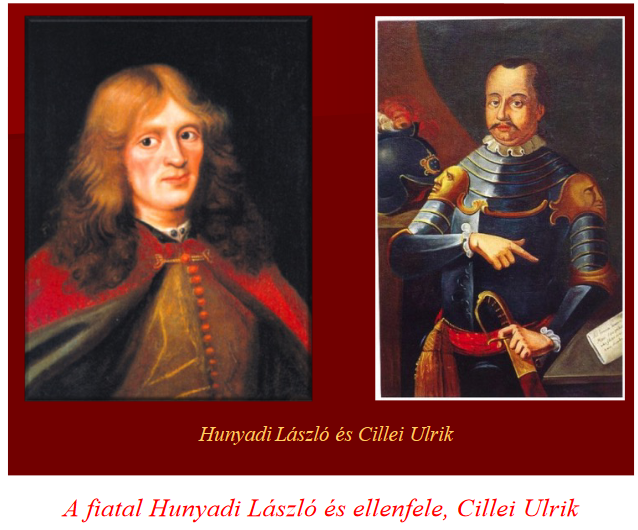
The meeting with a tragic outcome began with a heated argument between the two counts.
Among other things, László Hunyadi referred to the letter that Ulrik Cillei sent to the Serbian despot. It stated that Cillei would soon send two bullets to the despot, the heads of the two Hunyadi boys. What happened behind closed doors remains an eternal secret. However, it is a fact that Count Ulrik Cillei was brought out of the room dead. In the royal army of 4,000 people waiting in front of the gate - led by László V - there was enormous indignation. However, during the conciliatory negotiations, László Hunyadi was assured that, what's more, they took an oath that Cillei's supporters would not take revenge for what happened in Nándorfehérvár. The Cillei family died out with Count Ulrik, but Hunyadi's enemies did not give up the power struggle. They convinced the easily influenced László V to prosecute the Hunyadi boys, and even János Vitéz, Mihály Szilágyi and several of Hunyadi's supporters were charged and sent to Buda by royal order. László Hunyadi was illegally sentenced to death, and the sentence was quickly carried out. Given his young age, Mátyás was acquitted of the death sentence.
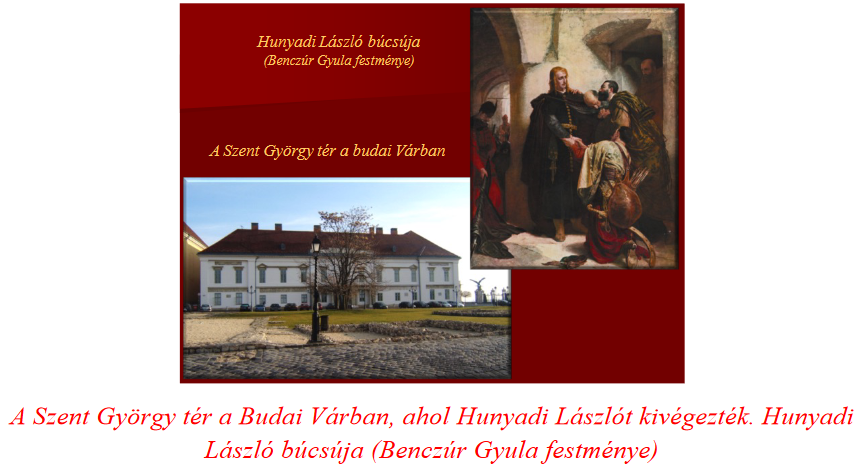
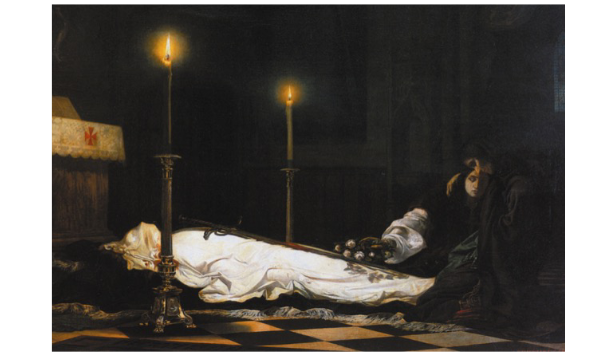
![]()
The imprisonment of young Mátyás in Prague
The execution of László Hunyadi on March 16, 1457 provoked the anger of the people of Hunyadi. Erzsébet Szilágyi and Mihály Szilágyi sparked an uprising. The king and his entourage fled from Buda to Vienna, but they also took the child Mátyás with them. However, in November 1457, the 17-year-old King László V died unexpectedly - but under suspicious circumstances. The throne of Hungary was once again empty. It was then that the cunning Czech governor, György Podjebrád . Csellel took Mátyás Hunyadi, who was almost still a child, to Prague, whom he then kept as a hostage and tried to use for his own purposes of gaining power.
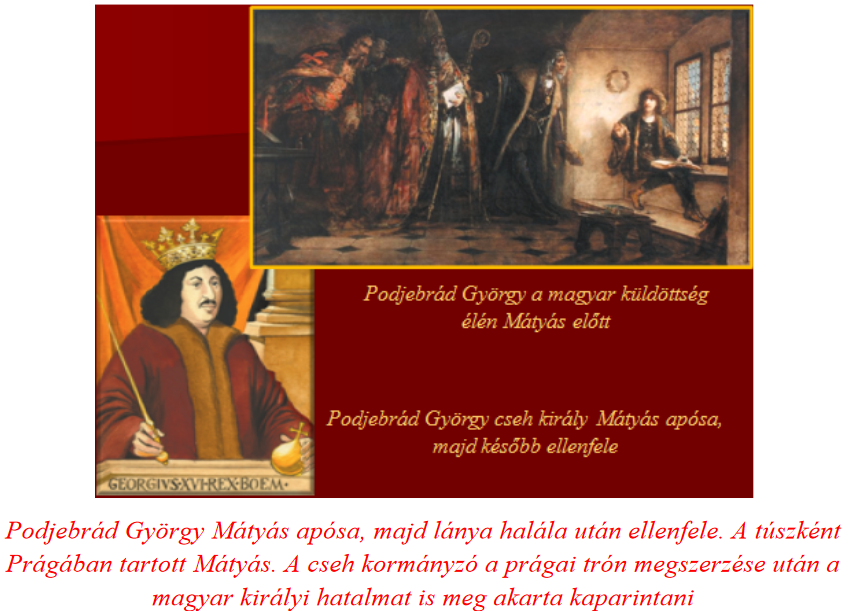
Mátyás, barely 15 years old, when his brother was executed and then dragged to Prague, and he did not feel his mother's protective and protective closeness, as well as the security protection of Mihály Szilágyi and János Vitéz, he was overcome by fear. But it was precisely this fear of death that trained him so much that the Hunyadi blood "took control" of his actions, which he very much needed after a short time.
György Podjebrád therefore also wanted to acquire the Hungarian throne. Mátyás offered to release him, but the price was that he would have to marry Kunigunda (Katalin) Seeing no other way out, the Hunyadi boy accepted this offer. At the time, he did not know that his family was fighting a decisive power struggle in Hungary with the Garai and Újlaki leagues, which was ended by a contract. According to this, if Mátyás returns home, he must marry Anna Garai . The young Hunyadi had not even crossed the border, he already had to make his first major decision. He preferred to confront his mother and uncle, but refused to marry the daughter László Garai
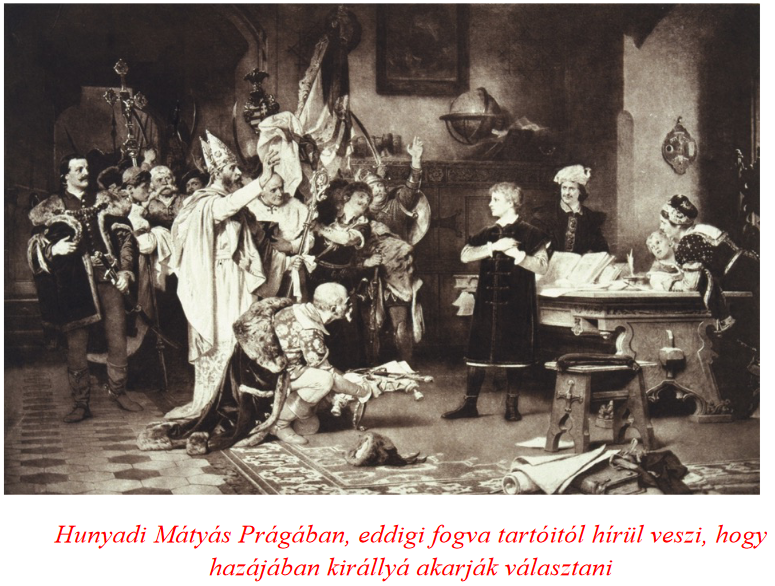
The election of Mátyás Hunyadi as king
The election of a king was accelerated by the news that a large number of commoners gathered on Rákos mező, who unanimously wanted to put János Hunyadi's son on the throne. And Mihály Szilágyi gave impetus to the will of the uncertain nobility with about 15,000 armed men recruited from the Hunyadi estates. On January 23, 1458, the papal envoy Carvajal, , concluded an agreement with the Hungarian high priests and landowners, which decided that Mátyás would be elected king. The commoners on their way from Rákos mező to Buda Castle learned on the ice of the Danube that Mátyás would become king. Mátyás, who was elected king on January 24, 1458, was greeted with great joy by the common nobility as well as the people of Buda.
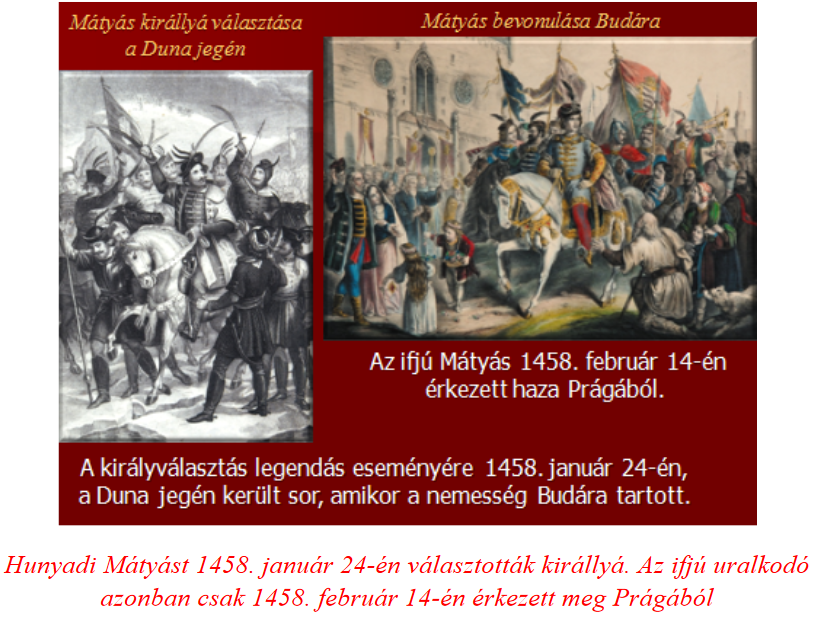
Governor György Podjebrád accompanied Mátyás, who had risen from prisoner to high-ranking guest, to the border. Katalin Podjebrád held at the Hungarian-Moravian border , but the new father-in-law did not renounce the previously negotiated ransom. The Czech governor was elected king in Prague almost at the same time as Matthias, on March 3, 1458. The two kings were at odds from the first moment. One of the reasons for the deepening conflict was religious, the other was due to power. The Hussite (Kelyhes) king was not accepted by the Pope or the majority of European rulers. Mátyás enjoyed the additional advantage of the competition for power, for example, in Silesia, where the Catholic population would have preferred to see the Hungarian king on the Czech throne rather than Podjebrád. Only the sworn enemy of the Hunyadis, the Catholic Habsburg III. Frigyes was not bothered by the Hussite king's faith, he stood by the Czech king.
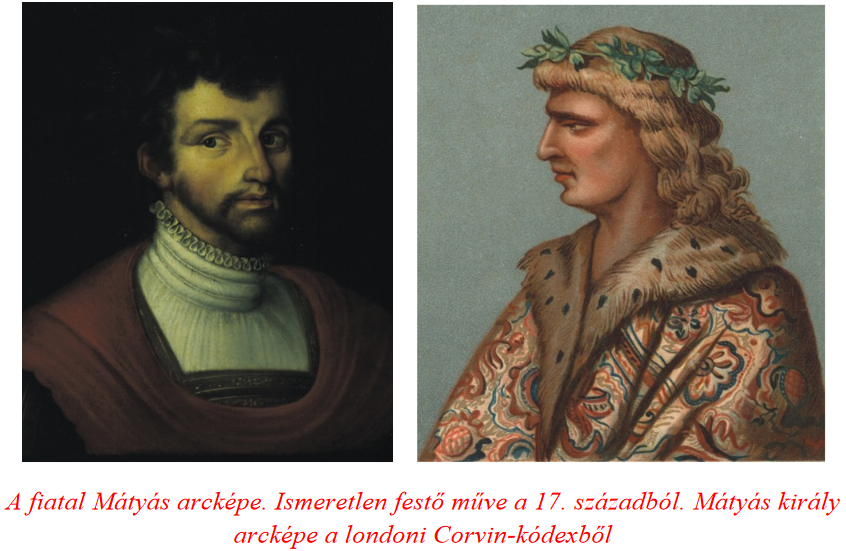
Mátyás, who returned home in February 1458, took an oath to uphold the rights of the common and noble nobility, the high priests, his uncle Mihály Szilágyi, and the city's citizens.
Although Mátyás fulfilled the will of all social strata, even then he considered it merely a formality. It was a bigger problem for him that since 1440 the Holy Crown III. It was in the hands of Frederick. And he refused to expose it, because he knew well what the Holy Crown means in the Hungarian legal system.
Despite this, Mátyás was consecrated as king in spectacular circumstances, with a bright ceremony in the Church of the Blessed Virgin Mary (today Mátyás Church). (Mátyás regained the Holy Crown from Frigyes five years later, in exchange for a huge ransom, and the authentic coronation only took place in 1464.)
The beginning of Matthias' reign
The young king already showed his lion's claws in his first years.
He said no to the Garai family and his followers, and in May 1461, true to his promise, he married Katalin Podjebrád. He removed his uncle Mihály Szilágyi, who had helped him to the throne, from his position as governor, indicating that he would not accept his guardianship. Moreover, the elderly nobleman, who was insulted to the point of blood, was locked up in the castle of Világos, thus keeping him away from politics, in fact from having a say in the affairs of the country.
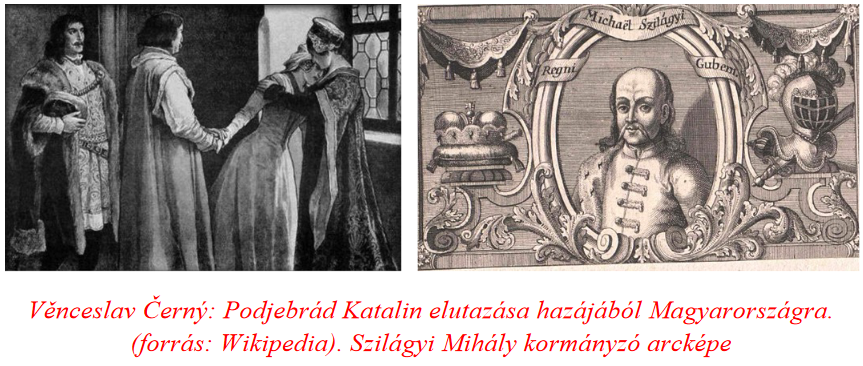
The people of Garai could not accept the election of Mátyás Hunyadi as king. In revenge, not caring about Hungarian interests, on February 17, 1459, Habsburg III. Frederick was elected king of Hungary. It all happened in the castle of the Újlaki family in Németújvár. This led to an open armed conflict, as a result of which Mátyás's troops crushed the rebellion at Felsőőr. The situation was solved by the fact that László Garai died in 1459. Miklós Újlaki was forced to come to an agreement with Mátyas, so peace was restored for a short time.
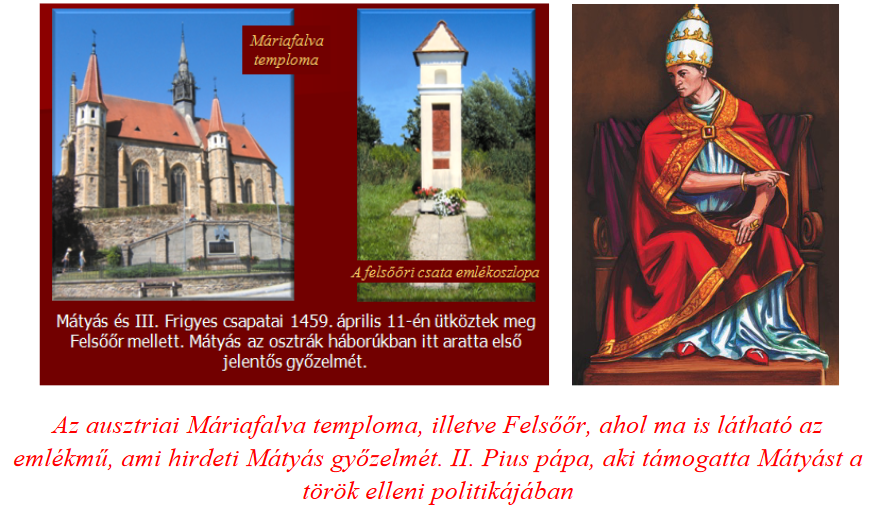
Mátyás, son of János Hunyadi, on the occasion of his accession to the throne III. Calixtus greeted him like this: "You, as a messenger of God, were received as a heavenly gift not only by Hungary, but by the entire Christian world."
However, the Pope died in March 1458. About the successor ( Eneas Silvio Piccolomini ), who was formerly III. As Frederick's courtier, he took a stand against the Hungarians, and they rightly believed in Buda that they had lost papal support. II. Pius (1458-1464) continued
the policy of his predecessor.
Rather, he supported the fight against the Turks, i.e. the Hungarians, and not III. Frigyes followed his own interests. (In these centuries, the popes still tried to fulfill their oaths! Among them, they considered repelling Islamic attacks as their main task .)
Mátyás' struggle with the Turks
Some of his contemporaries blamed Mátyás for neglecting the defense of the southern ends and the fight against the Turks for the sake of his own great power aspirations.
(This accusation is also voiced by some of the historians of the present day.) However, the facts do not justify this.
It is true that Mátyás Hunyadi fought wars on several fronts, as he spent many years in the campaigns against the Czechs and Austrians, sparing no money, no soldiers, no time. Furthermore, he had to fight with internal opposition, but despite all this, he was not neglected by the World Conqueror, II. Nor the war against Mehmed
The ruler of the Kingdom of Hungary could afford to fight on multiple fronts, since the ten provinces of the Holy Crown made Hungary one of the great powers of Europe.
This was complemented by the brilliant diplomatic and military talent of King Matthias, the the Medici , and the organization of the legendary black army with great striking ability.
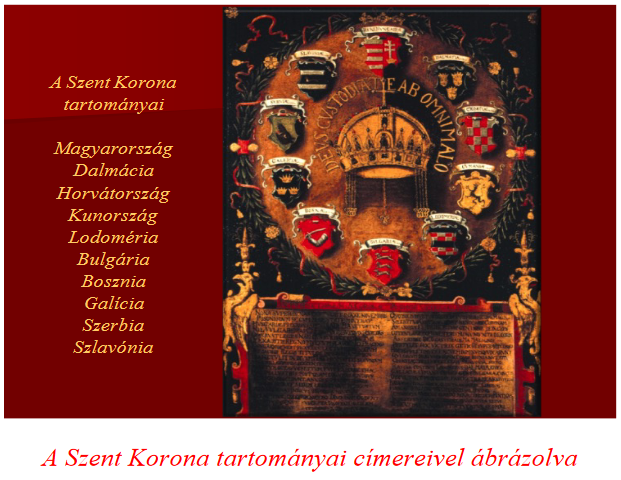
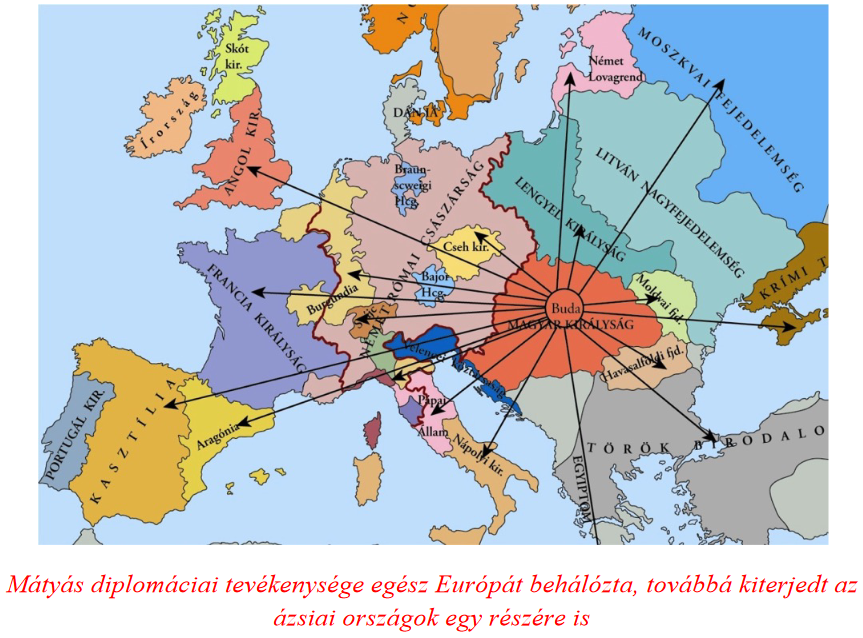
Already in the first year of his reign, in 1458, after the fall of Galamboc, Mátyás turned against the Turks. The World Conqueror pushed tenaciously towards Buda and Vienna, but one of the great goals of the Turks was also the capture of Venice. After all, the rich squid city held the money and the key to Mediterranean trade. The backstory of history, the message that continues to this day, is that the Kingdom of Hungary protected those who regularly attacked it from behind by building the southern border line, with money from the royal treasury, and by sacrificing thousands of Hungarian lives. The Sultan's armies occupied Havasalföld in 1462, and Jajca Castle in 1463, among others. The voivode of Havasalföld, hated even in his homeland, Vlad Tepes (Dracula) was driven from his throne by the Turks. The malicious and cruel voivode was captured by Mátyás and held captive in Buda for 12 years.
(A story almost two decades later is related to Turkish domestic politics. Prince Czem Bayezid II who came to the throne . After Bayezid's election, he had to flee because, as a claimant to the throne, he would have been immediately executed at the Porte
. Mátyás was also related to him , but he ultimately failed to bring Dzemet, who was sent to France, to Buda.)
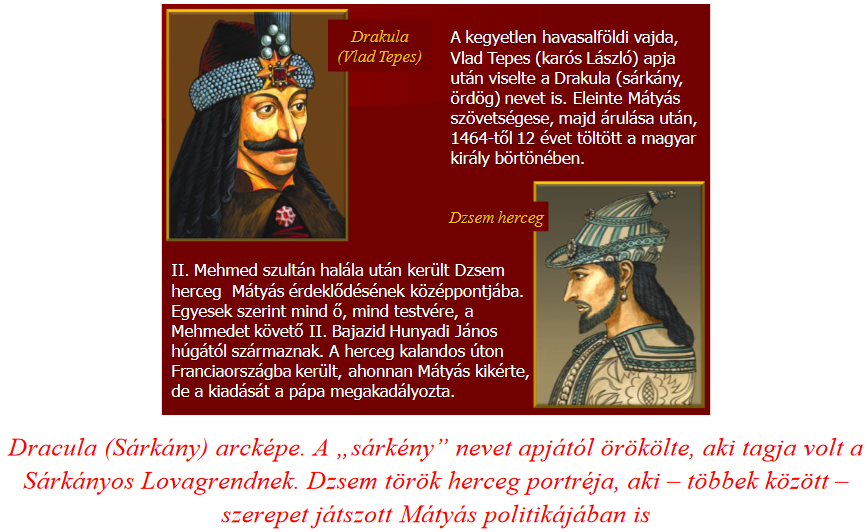
The fall of Galambóc, which was still built by Zsigmond, and the loss of Jajca were sensitive losses for Hungary. The latter was of particular importance to Mátyás, because the Bosnians created an independent principality, the center of which was Jajca. As the Hungarian king said: "Bosnia always and always belongs to Hungary." The Hungarian army recaptured Jajca from the Turks on Christmas Day 1463. In addition to the fact that the castle played a key role in Hungarian politics, it greatly increased the international authority of Mátyás. In these years, the young king was also referred to as the "Turkish beater" after his father.

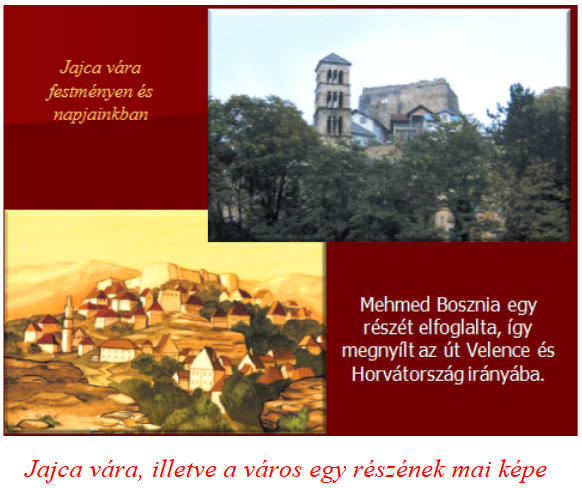
Mátyás's ambitious goals - acquiring the throne of the German-Roman Empire, expelling the Turks from the Balkans, raising the country to an economic, military and cultural power - could only be achieved if he could back it up with military force. Arming and the creation of the black army served this purpose.
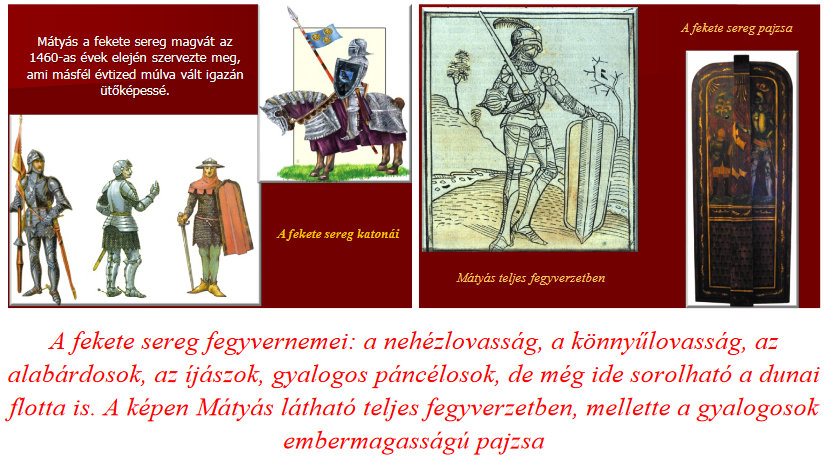
A turning point in Mátyás's life
In the first half of the 1460s, two events hindered the aspirations of the twenty-year-old ruler. One of them, on July 19, 1463 III. The Peace of Vienna concluded with Frederick. The peace agreement brokered by György Podjebrád resulted in Mátyás getting back the city of Sopron, and with it the Holy Crown. True, he had to pay HUF 80,000 for the latter. However, the peace also included, and this was a bad message for the future, that Frigyes could continue to use the Hungarian royal title, and that the Habsburg ruler Mátyás "adopted him as his son". This later caused countless problems because the Habsburgs could refer to it for centuries when they claimed the Hungarian throne.
The other tragic event was when Katalin Podjebrád died in childbirth in March 1464. The irreparable family loss caused a long-lasting political crisis. On the one hand, György Podjebrád, who so far had not shown a friendly face, then openly pursued a hostile policy against Mátyás. On the other hand, Mátyás, who was looking for a new wife, was singled out in the courts of Europe, indicating that the Hungarian ruler was considered to be of low birth. However, his power, talent, and his fight against the Turks were recognized and accepted.
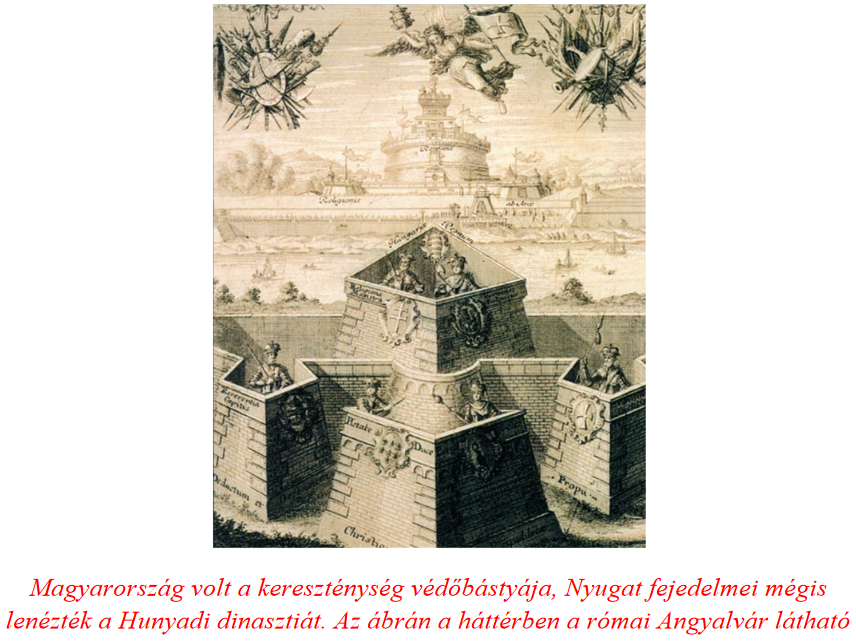
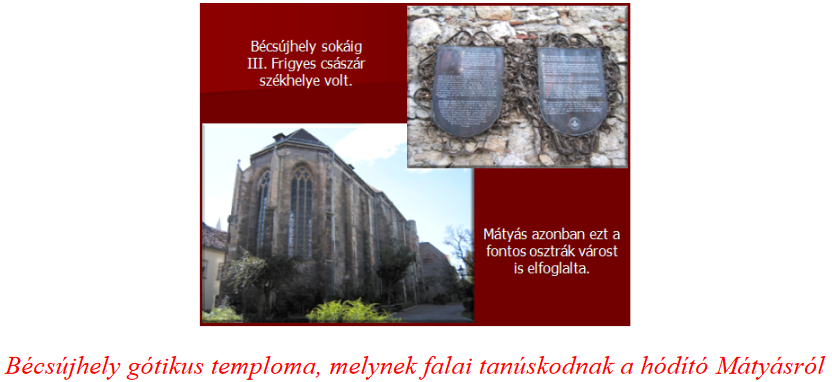
Mátyás managed to find a wife only after more than ten years. But it was not the most fortunate choice when he married Beatrix of Aragon from Naples. of Johanna of Anjou Endre of Anjou from Hungary, which ended tragically a hundred years earlier .
The spirit and methods of the land of squid and poison mixers did not change either then or later. Especially not when it came to power, money and Hungarians. , the bright era of Mátyás Hunyadi's reign began in the second half of the 1460s
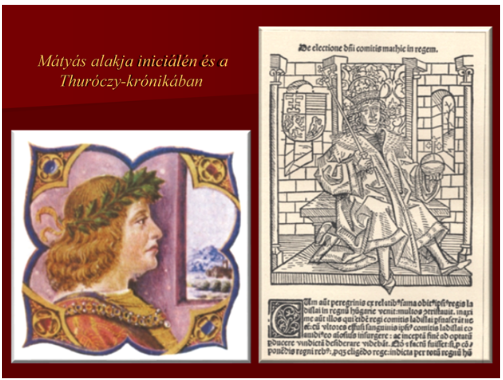
Author: Ferenc Bánhegyi
(Header image: MTI)
The parts of the series published so far can be read here: 1., 2., 3., 4., 5., 6., 7., 8., 9., 10., 11., 12., 13., 14., 15., 16., 17., 18., 19., 20., 21., 22., 23., 24,, 25., 26., 27., 28., 29/1., 29/2., 30., 31.

